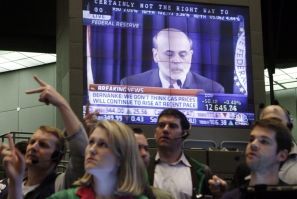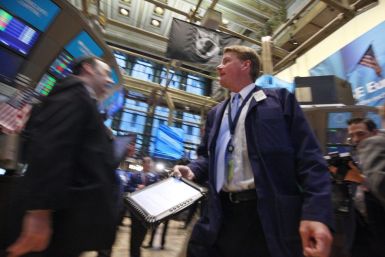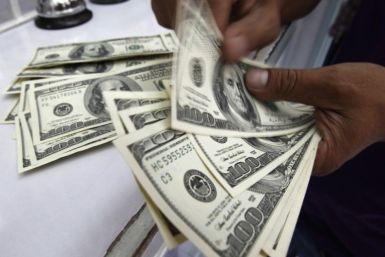Asian stock markets declined Friday as batch of disappointing economic readings from the US signaled that the recovery was slowing in the world's biggest economy.
Gold eased on Thursday as European debt jitters and worries over the U.S. job market extended the metal's losses for a fifth consecutive day.
Regional manufacturing activity shrank in April, but employment increased, according to the Philadelphia Federal Reserve's Business Outlook Survey, which was released Thursday.
Stocks were set to open little changed on Thursday as investors grappled with euro zone uncertainty, a raft of corporate earnings and softer-than-expected data on the domestic labor market.
Stock index futures rose on Thursday after Spain sold all of its debt at an auction and ahead of a raft of corporate earnings and economic data.
While chances of a third round of U.S. money-printing quantitative easing measures, or QE3, have dimmed, the World Gold Council, or WGC, remains positive on the yellow metal's outlook due to its international appeal and value in hedging against inflation and deflation.
Industrial output was flat for a second straight month in March, held back by a drop in manufacturing, according to a Federal Reserve report on Tuesday that suggested a cooling in factory activity.
Industrial output was flat for a second straight month in March, held back by a drop in manufacturing, according to a Federal Reserve report on Tuesday that suggested a cooling in factory activity.
Two top Federal Reserve officials pointed on Monday to last month's surprisingly weak jobs report as all the more reason to take a wait-and-see approach to a U.S. economy that, in general, is improving.
The Federal Reserve is independent but it does not exist in a vacuum, as waning appetite at the central bank for contentious bond purchases suggests.
Investment management firm Loomis Sayles' stock market forecast for 2012 and beyond is quite bullish.
Gold prices fell in quiet trade on Monday, following crude oil's losses, as worries about Spain's ability to repay its debt and a resurgent euro zone debt crisis extended bullion's loss to a second day.
The Federal Reserve was neither hawkish nor dovish when it set a formal inflation target, and such a move would make sense even if the U.S. central bank had a single mandate, a top Fed official said on Monday.
The New York Fed reported on Monday slowing growth within the manufacturing sector in March, with overall sentiments remained positive and employment improved despite difficulty finding highly-skilled labor.
The cost of living in the U.S. increased at a slower pace in March as the rise in energy prices eased, supporting the Federal Reserve’s view that the jump in oil and gas prices is only temporary.
U.S. Federal Reserve officials, out on a speaking spree on Thursday, suggested the economy would have to deteriorate for the central bank to consider additional monetary stimulus.
U.S. Federal Reserve officials, out on a speaking spree on Thursday, suggested the economy would have to deteriorate for the central bank to consider additional monetary stimulus.
Risky assets rose on moderate volume and moderately bad news Thursday, as investors seemed to be placing a paradoxical bet that a slowdown in economic growth would jolt the U.S. central bank into action -- inflating the prices of stocks, commodities and other assets -- while at the same time assuming the slowdown would not be so harsh as to throw the current recovery completely off track.
The Fed is also well aware that employment had peaked in each of the past two springs before resuming growth late in the year.
Stocks rose on Thursday as lower yields on some euro-zone debt eased some concerns and rumors about China's strong GDP increased investors' appetite for risk.
Dudley said strong first-quarter data might have been the result of unseasonably warm weather in much of the United States that pulled forward some economic activity and hiring.
U.S. 15-year fixed-rate mortgages dropped to a new record low of 3.11 percent in the week ending April 12, mortgage financier Freddie Mac said Thursday.


































